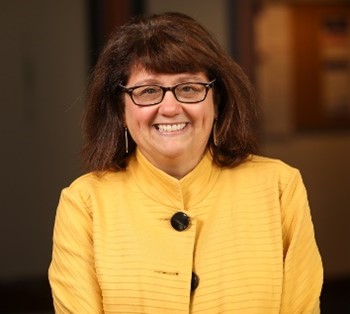Find a CBT Therapist
Search through our directory of local clinicians.
Sue Orsillo

Mentor Spotlight
ABCT’s Spotlight on a Mentor program aims to highlight the diversity of excellent research mentors within the organization’s membership ranks. Our goal is to spotlight both promising and accomplished mentors across all levels of academic rank, area of specialization, and type of institution.
Dr. Sue Orsillo is Professor of Psychology and Associate Director of Clinical Training at the Suffolk University, where she has been a member of the faculty since 2004. Dr. Orsillo maintains an active research lab and has served as primary mentor to 16 students who have completed Suffolk’s APA accredited PhD program in clinical psychology. Dr. Orsillo received her Ph.D. from University at Albany, State University of New York in 1993 under the mentorship of Dr. Rick Heimberg and she completed an internship and postdoctoral fellowship at the National Center for PTSD – Behavioral Sciences Division at the Boston VA. She is a currently a fellow of the Association for Behavioral and Cognitive Therapies.
Dr. Orsillo has published over 100 journal articles and book chapters, and co-edited two books broadly focused on the nature, causes, prevention and treatment of anxiety and related clinical problems. In collaboration with Dr. Lizabeth Roemer, she developed an acceptance-based behavioral therapy for generalized anxiety and comorbid disorders, examined its efficacy, and identified mediators of change in a series of studies funded by the National Institute of Mental Health. Drs. Orsillo and Roemer are co-authors of The Mindful Way Through Anxiety, Worry Less, Live More: The Mindful Way Through Anxiety Workbook, and the newly released Acceptance-Based Behavioral Therapy Treating Anxiety and Related Challenges. In collaboration with her doctoral students, Dr. Orsillo’s current work explores how the cultivation of acceptance and self-compassion, along with encouragement to clarify and affirm personally meaningful values, may help to buffer people from contextual stressors, build resilience, improve psychosocial functioning, and enhance quality of life.
Response:
I have been engaged in direct mentorship of clinical doctoral students for 25 years (most recently as a mentor in the Suffolk University clinical psychology program for 17 years). As I prepare to transition into a very different type of role as the Senior Director of Education and Training at APA, I have definitely spent time deeply reflecting on the impact of mentors on my career path, as well as the ways in which serving as a mentor to others has brought meaning and purpose to my work.
As a first-generation college student, I understand the incredible life-changing opportunities that committed mentorship can provide. The transformational connections I have forged with mentors enabled me to achieve personal career goals I thought were beyond reach and to contribute to the development of a cadre of scientist-practitioners who are making the world a better place. I am deeply grateful to the mentors who encouraged me to stretch beyond my comfort zone. From my doctoral mentor Rick Heimberg, who invested considerable time and effort into developing my critical thinking and writing skills, I learned that mentorship requires deep engagement with your mentees’ work and a sustained commitment to their development. My internship and post-doctoral mentor Brett Litz taught me the importance of conducting research that is conceptually rich, scientifically rigorous, and clinically meaningful. My friend, collaborator, and peer mentor Liz Roemer continuously demonstrates to me the countless benefits of forging deeply authentic, caring, and supportive relationships with mentees. And my students have challenged me to remain humble about all that I don’t know, to embrace the process of lifelong learning, and to think broadly and creatively about the potential career paths available to them as future clinical psychologists.
Over the last 25 years, I have tried to apply all that I have learned from my mentors to my own mentorship philosophy and style. I have strived to encourage my students to engage in high quality, rigorous, and meaningful work while providing them with a safe space in which they can explore, take risks, make mistakes, learn, and grow. It’s been an incredible privilege to have contributed to the professional development of so many wonderful psychologists.
